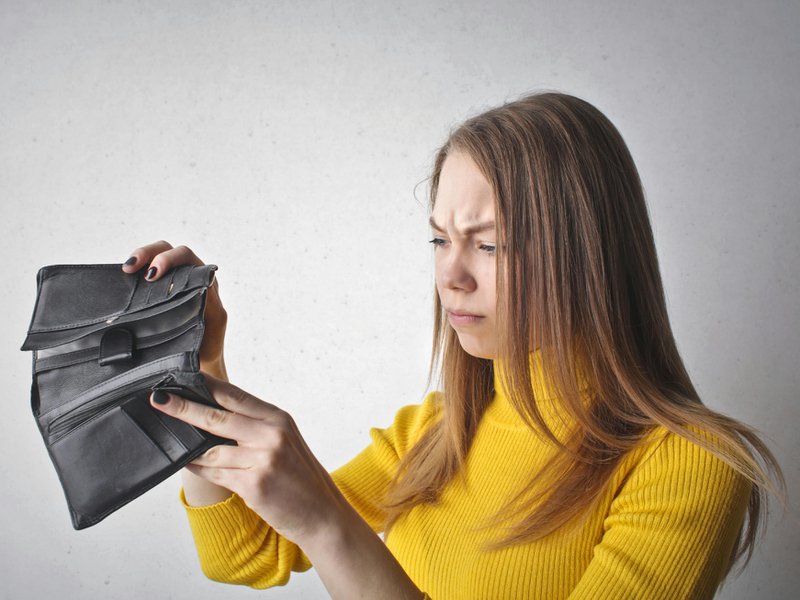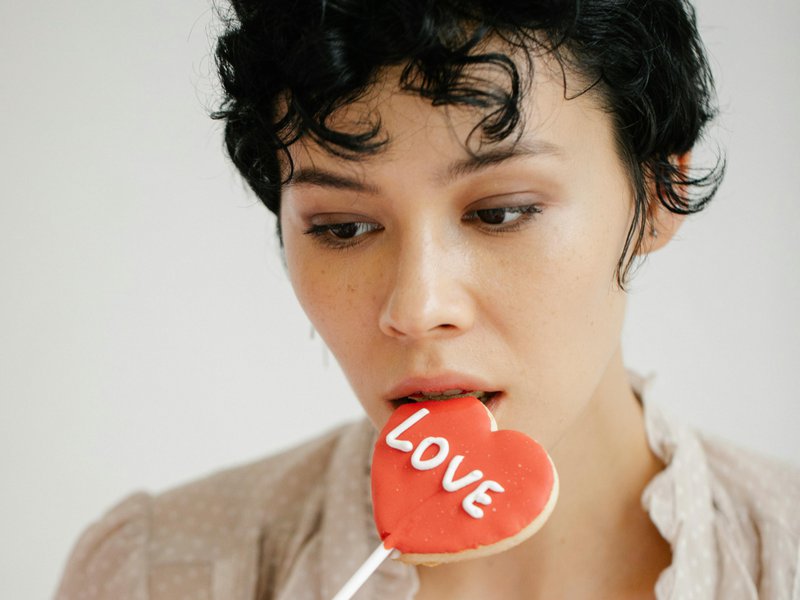Being a people-pleaser can make life difficult, but when the holiday season arrives, it can be that much worse. The tendency to do too much for loved ones and never set limits can get us into all sorts of trouble, both financial and emotional.

People-Pleasing: A Misguided Attempt to Gain Approval
I’ve seen people spend money they didn’t have on unnecessary presents, racking up debt that took them the rest of the year to pay off. The worst part is that those on the receiving end didn’t care, one way or the other, about these things. The people-pleaser was so convinced that they had to purchase these expensive, over-the-top gifts, but it was all in their head.
I’ve written extensively about people- pleasing in the past, but just to refresh: People-pleasing is a behaviour in which we do too much for others and in which we don’t say “no” to things that upset us or hurt us. We go along with situations that make us unhappy, and we never stand up for ourselves for what we need or push back against behaviours that are hurtful, unacceptable, or inappropriate. We tolerate disrespect and exploitation and we give and give, even when it exhausts and depletes us.
We never express our displeasure for fear of offending, and we don’t dare voice our own opinions, needs, or feelings out of the fear of being rejected or abandoned.
People-pleasing comes from a place of insecurity and low self-esteem. People-pleasers believe that we have to behave this way in order to earn the love and attention of those around us.

The Pressure to Overperform During the Holidays
During the holidays, people-pleasing can really get out of hand. People can spend hours, even days, preparing elaborate meals for friends and family, who would be happy to eat something simple and just enjoy their company. People-pleasers will go overboard with holiday decorations that nobody needs or cares about. They will bake multiple desserts and multiple batches of cookies and treats when their loved ones would be satisfied with far less.
The pleaser is convinced that they have to do this because otherwise, people would be disappointed with them. They are doing this in order to ensure that they will win the approval of their friends and family members. It’s not what they want to do, but it’s what they believe they must do, even if it exhausts them and drains their finances.
The difference between a people pleaser and someone who is happy to do these things is that the former does it out of a fear of rejection and a need for approval whereas the latter does it because they sincerely enjoy it and it makes them happy to do it.

People-Pleasing Leads to Resentment and Addiction
The problem with people pleasing is that it’s not authentic. Nobody is always so agreeable, tolerant, understanding, or accepting of other people‘s behavior. Nobody is comfortable always saying “yes” to things that they don’t want and never pushing back against behaviours that make them feel bad. When we engage in people-pleasing, the natural result is for us to gradually build up more and more resentment.
We resent how much we’re doing for everyone else and how it leaves no time for us to take care of ourselves. We resent how we go along with things that we don’t want to go along with and how we tolerate bad behaviour from those around us. We resent always being the one who makes that extra effort and who works that much harder. Even though, on the surface we’re smiling, inside, we’re seething.
This resentment becomes very anxiety- provoking to us, because as people-pleasers, the last thing we want is to upset anyone. So, we have to push it down and try our best not to express it.
But, when we repress our natural resentment, two things can happen: the first is that the resentment fights our attempts to suppress it. So, we have to use some type of behaviour to push it down. We can overeat, drink alcohol to excess, use drugs, gamble, spend more money, or play video games for hours on end, all to keep our resentment at bay.
And because all these behaviours aren’t really that good at keeping our resentment down, we have to do more and more of them, or several different types of them, in order to keep shoving the resentment back down so that it won’t ever be expressed. This creates a pattern of compulsive behavior, which can even turn into addictive behavior, and then the addiction can take on a life of its own.

The Dark Side of People-Pleasing: Anger and Unhappiness
The other thing that happens is that even though we’re trying to suppress it, the feelings can still leak out in passive aggressive behaviours or in small, angry outbursts: little mini-explosions of rage that we instantly regret. When we have an outburst, our anxiety goes through the roof and we feel that much more worried about being rejected. So we work that much harder to repress our resentment about all the people-pleasing we’ve been doing.
And if we’ve been successful in avoiding leaking the anger in small or larger outbursts, there are still consequences for our passive-aggressive behavior. People tend to get angry when those around them are behaving passive-aggressively. If the people around us are reacting negatively to our passive-aggressive behavior, this makes us more anxious and we want to repress our resentment even more, which could then leads to engaging in compulsive or addictive behaviour.

The Paradox of People-Pleasing: How it Creates Loneliness and Disconnection
Why do we become resentful when we’re people-pleasers? It’s because everyone needs to be authentic. We all need to be simply who we are. When we have to pretend, there are two problems: One, we feel alienated from ourselves because we don’t know who we are or because we can’t be who we are. In both scenarios, we feel lost and miserable.
Two, we feel alienated from others. When we aren’t being genuine, no one knows who we are. We’re only showing them a version of ourselves that’s meant to please so they never know the real person behind the pleasing mask. It’s deeply lonely to be interacting with people, but to never feel seen or known. Intimacy is defined as “seeing and being seen,” and the tragic irony of the people–pleaser is that intimacy isn’t possible for them, even though it’s what they want the most.
Another problem with people-pleasing is that, deep down inside, we know that we’re not being loved for who we are. Any attention, affection, or positive regard that we receive because of the people-pleasing doesn’t make us feel good. We can’t appreciate it because we know that we had to pretend in order to get it.
When we have to perform in order to get love or attention, we know that the love isn’t for our real self and we feel the disconnect inside ourselves. We feel sad, lonely, and empty because we’re working so hard to gain love and attention, but the love we’re receiving doesn’t truly satisfy us.
If we’re being loved for a false, pleasing persona, we know that we’re not being loved for our true, authentic self. The approval we receive feels like empty calories that don’t nourish us, deep down inside. In fact, the emptiness we feel leads us to crave more attention or other forms of soothing.
Because people-pleasing isn’t satisfying, it can lead to feelings of emptiness which we then need to fill with food or shopping, numb with alcohol or drugs, or distract with gambling or video games.
During the holidays, the pressure to connect is greater than ever. Many of us feel the need to prove to ourselves that we’re loved and that we have people to love. For people-pleasers, who are already insecure about their attachments, the urge to do too much and to tolerate too much can become overwhelming.

People-Pleasing Creates More Problems Than it Solves
The people-pleaser can end up in debt, unable to pay their rent, their tuition, or their bills. And all because they had to buy presents that most people didn’t really want or need.
On the emotional level, the people-pleaser is desperate to feel that sense of belonging with their friends and family members, but the more they please others, the more alienated and disconnected they feel, and the more likely it is that they’ll turn to addiction to self-soothe.
So, what’s the answer? We need to see that love can’t be earned or bought. Love is given freely or not at all. We need to understand that if people love us it’s because they’re capable of loving us and not because of something that we’ve done to please them.
Of course, we can’t behave like a jerk and expect everyone to be happy with us. But if we’re our normal, pleasant selves, there will always be people who are capable of caring about us. We just have to trust this.

People-Pleasers Often Fall Prey to Users and Abusers
Ironically, people-pleasers tend to attract users who like being spoiled and pampered. The people-pleaser can become habituated to this type of person and start thinking that everyone is a user. The people-pleaser needs to see that there are kind, caring people out there who are happy just to be with them and who aren’t there to take advantage of them.
The worst part of it is that because they attracted users, the people-pleaser is often treated worse than the average person. The paradox of people-pleasing is that these individuals attract exactly the opposite kind of person to whom they wish to be around.
Although the temptation to be a people-pleaser is greatest over the holidays, we have to resist the urge, and understand that the only way to get through the holidays emotionally and financially intact is to be authentic and to let people know who we really are. Instead of doing too much and becoming exhausted and resentful, and possibly having an angry outburst or indulging in compulsive behaviour to compensate, we can do just what feels right and that can be enough.

Giving Up People-Pleasing and Finding True Connection
If we can be authentic and do only as much as we’re comfortable with we can have true closeness with those people who choose to be around us. We can trust that there are people out there who really do care about us and aren’t just around to take advantage of us. Obviously, these relationships are a lot more meaningful and fulfilling for everyone.
When we’re not resentful of having to be someone that we’re not and of having to do more than we’re comfortable with doing, and when we’re not feeling empty because we’re draining ourselves financially and and emotionally, we can sit back and enjoy the holidays with the people who like us for who we are, and with whom we can have authentic and satisfying connections.
—-
Sign up here for my free bi-weekly wellness newsletter that brings you fresh, thought-provoking content.
Subscribe to my YouTube Channel where you’ll learn simple tips for taking the best care of yourself and your loved ones.
Tune in to my Ruthless Compassion Podcast where I go in-depth about topics like mental health, trauma, and loneliness.
Tune in to my Reel Mental Podcast where I host lively discussions with film critics and explore how mental health is portrayed on-screen.
Complete our Audience Listening Survey here.



